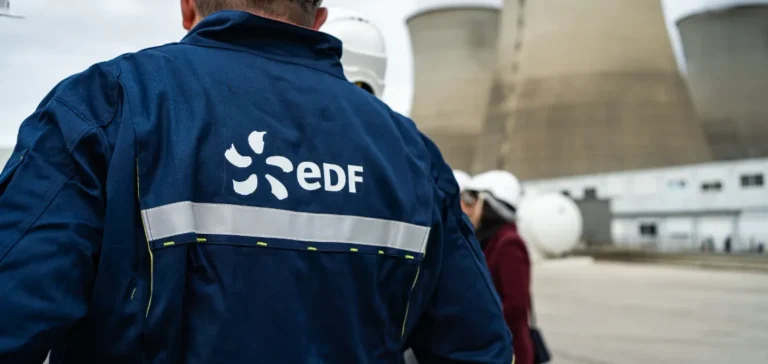French utility Électricité de France (EDF) has confirmed its intention to invest €25bn ($26.5bn) by 2030 in the modernisation and safety upgrades of its existing nuclear facilities. The programme notably includes lifetime extension works for reactors, some of which are reaching 40 years of operation, as well as strengthening engineering capacities to anticipate France’s nuclear revival.
A programme centred on the existing fleet
The plan builds on the “Grand Carénage,” launched several years ago, but expands its financial and technical scope. EDF aims to bring most of its 56 operating reactors up to post-Fukushima safety standards. The company also intends to ensure greater resilience to climate-related risks and reinforce long-term safety procedures.
Operationally, EDF plans to mobilise more than 12,000 engineers and technicians across its sites to carry out major maintenance operations. This mobilisation is also expected to serve as a training ground for future teams required for the upcoming nuclear projects announced by the government.
Preparing for nuclear revival
In parallel with modernising existing infrastructure, EDF is preparing for the arrival of new EPR2 (European Pressurised Reactor of second generation) units. The goal is to ensure industrial and technological continuity between the current generation of reactors and future installations. Financing for this expansion is partly secured through debt instruments, including green bonds.
The group is also focusing on increased standardisation of equipment to avoid cost overruns and delays observed in recent projects. EDF is collaborating with several French industrial companies to structure a supply chain capable of meeting future volume and scheduling demands.
Impact on jobs and the industrial sector
The announced investment is expected to generate a significant impact on the French nuclear industry, particularly for subcontractors. The plan also includes reactivating certain industrial sites that have been dormant in recent years. EDF indicates that nearly 30% of the budget will be allocated to relocating or strengthening production capacities within France.
Through this programme, the group seeks to restore a continuous industrial cycle in civil nuclear energy, following a decade marked by reduced investment and technical challenges on several sites. According to EDF, “these efforts will reposition France as an autonomous actor in the nuclear sector.”






















